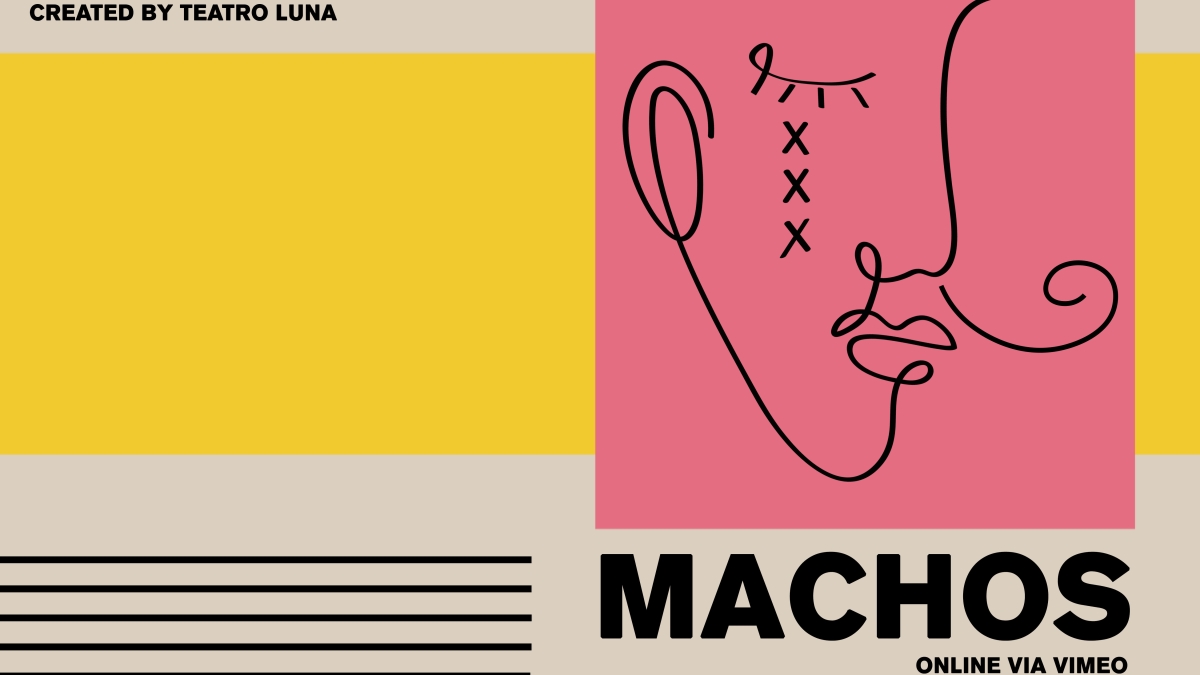ASU presents excerpts of 'Machos,' panel on creating virtual theater production

The production “Machos” was moved from the stage to a Zoom room.
How do you put on a live theater production with multiple cast members via Zoom?
Students, faculty and staff in Arizona State University's School of Music, Dance and Theatre have adapted all the elements of their first theater production of the semester in order to move it from the stage to a Zoom room.
The cast and crew of “Machos” met the challenge by holding virtual auditions in the spring and scanning actors in 3D so the costume shop could create costumes while physically distancing. They also built miniature sets and scale models to create virtual sets with projection mapping.
This weekend, audiences will get the opportunity to hear about the behind-the-scenes work as well as watch excerpts from “Machos,” a performance that draws from interviews with 100 men nationwide on what it means to be a man.
The team put together a live panel that will stream both before and after a recorded selection of scenes and monologues from the piece, after complications in the integration of a brand-new system for online streaming meant the full show could not be recorded.
The panel and excerpts will feature student artists who have been working on this project: Alexandra Meda, the show’s director and the artistic director of Teatro Luna, and Nicola Olsen, the dramaturge for the project. The interactive discussion and viewing will allow for questions directed to the panelists around this experience and the project at large.
“Machos” was originally devised in 2006 when Teatro Luna's Company of Latina and Women of Color set out to ask men the question directly: What does it mean to be a man and who taught you to become one? The result was “Machos,” which was performed in drag by the all-femme social justice theater company in 2007 in Chicago, and on a regional tour that the Chicago Tribune called "hugely entertaining."
From one young man’s relationship with his correctional officer father, to a man cheating on his wife with himself, the work presents a range of true-life stories with Teatro Luna’s trademark wit, humor and unique point of view.
Assistant dramaturge to the show Hugo Crick-Furman said the show addresses toxic masculinity at a time when “we are currently experiencing and discussing gender and patriarchy in a way that we have never truly done before, including finally opening a discussion of the ways that patriarchy as a structure hurts men as well as women and gender nonbinary folks.”
Crick-Furman said “Machos” offers a nuanced way of exploring toxic masculinity.
“In short, discussions that could explore the way that toxic expectations of masculinity harm men are often reduced to simply ‘men are the oppressors, so men are bad,’ or that, rather than toxic masculinity being a way of describing the limiting expectations that surround men, painting masculinity itself as toxic,” Crick-Furman said.
As part of this online production, Olsen created a virtual lobby where visitors can read more of Crick-Furman’s dramaturgical work, view research on this performance and experience a large variety of behind-the-scenes content as well as rehearsal footage.
The virtual lobby is just one more example of how the theater program is looking for new ways to share its work, said William Partlan, artistic director for theater in the School of Music, Dance and Theatre.
Partlan added that although this presentation of “Machos” will differ from its original intention, “this is a production true to the mission of ASU: innovative, process-oriented and full of discoveries in the new world of streaming performance.”
“Machos: Excerpts and live panel”
7:30 p.m., Oct. 23–24
2 p.m., Oct. 25
Online via Vimeo. Tickets available here.
More Arts, humanities and education

An intergenerational approach to learning
Five students stood in front of the class and went through their presentation, complete with video and, afterward, a Q&A…

ASU research finds high dissatisfaction among Arizona's K–12 educators
New research at Arizona State University has found deep dissatisfaction among Arizona's K–12 educators, who cite overwhelming…

A humanities link from Harvard to ASU
Jeffrey Wilson didn’t specifically seek out Arizona State University professors when it came to filling out the advisory board…